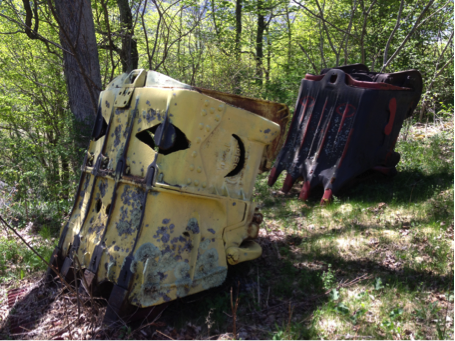

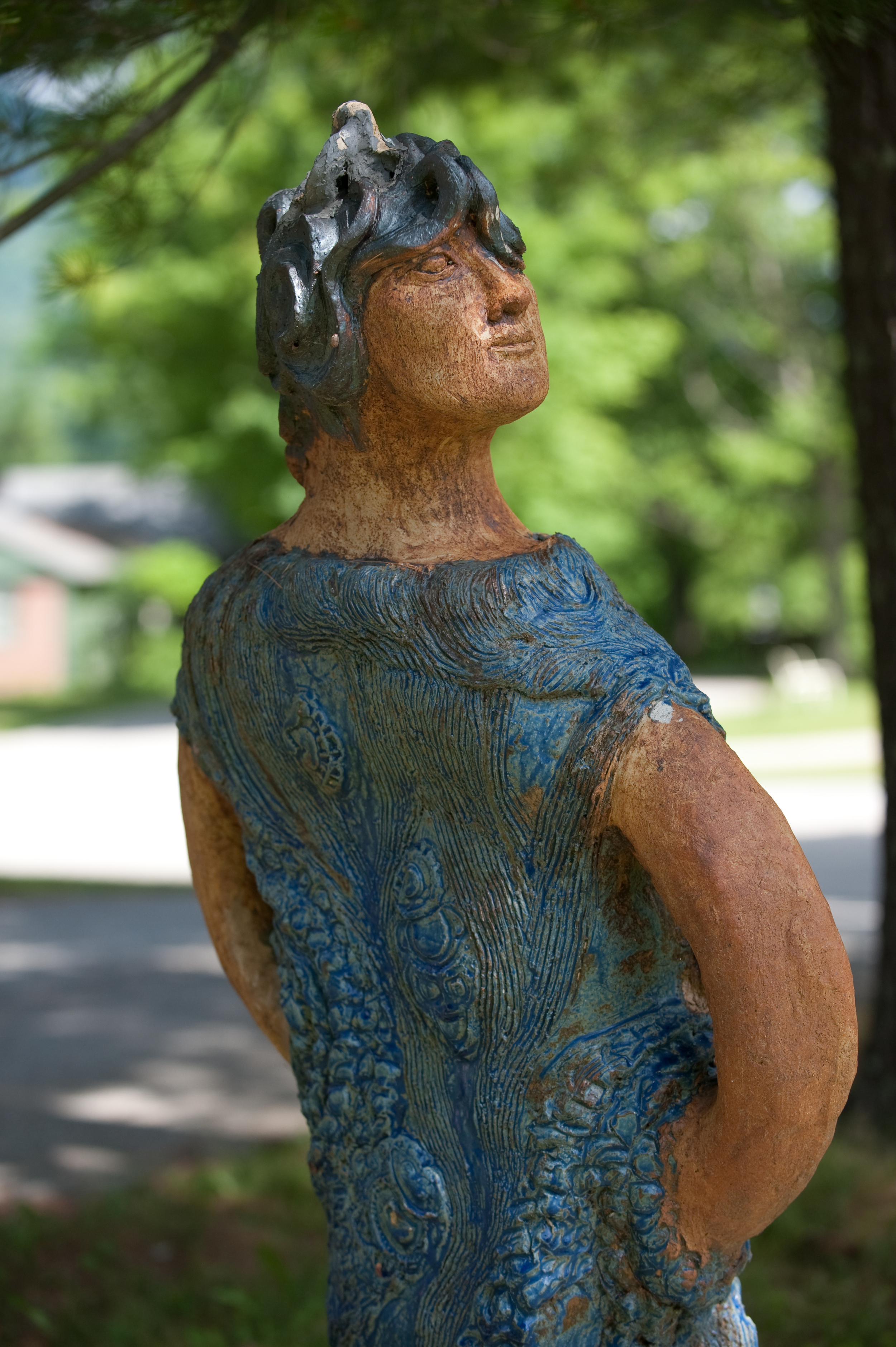
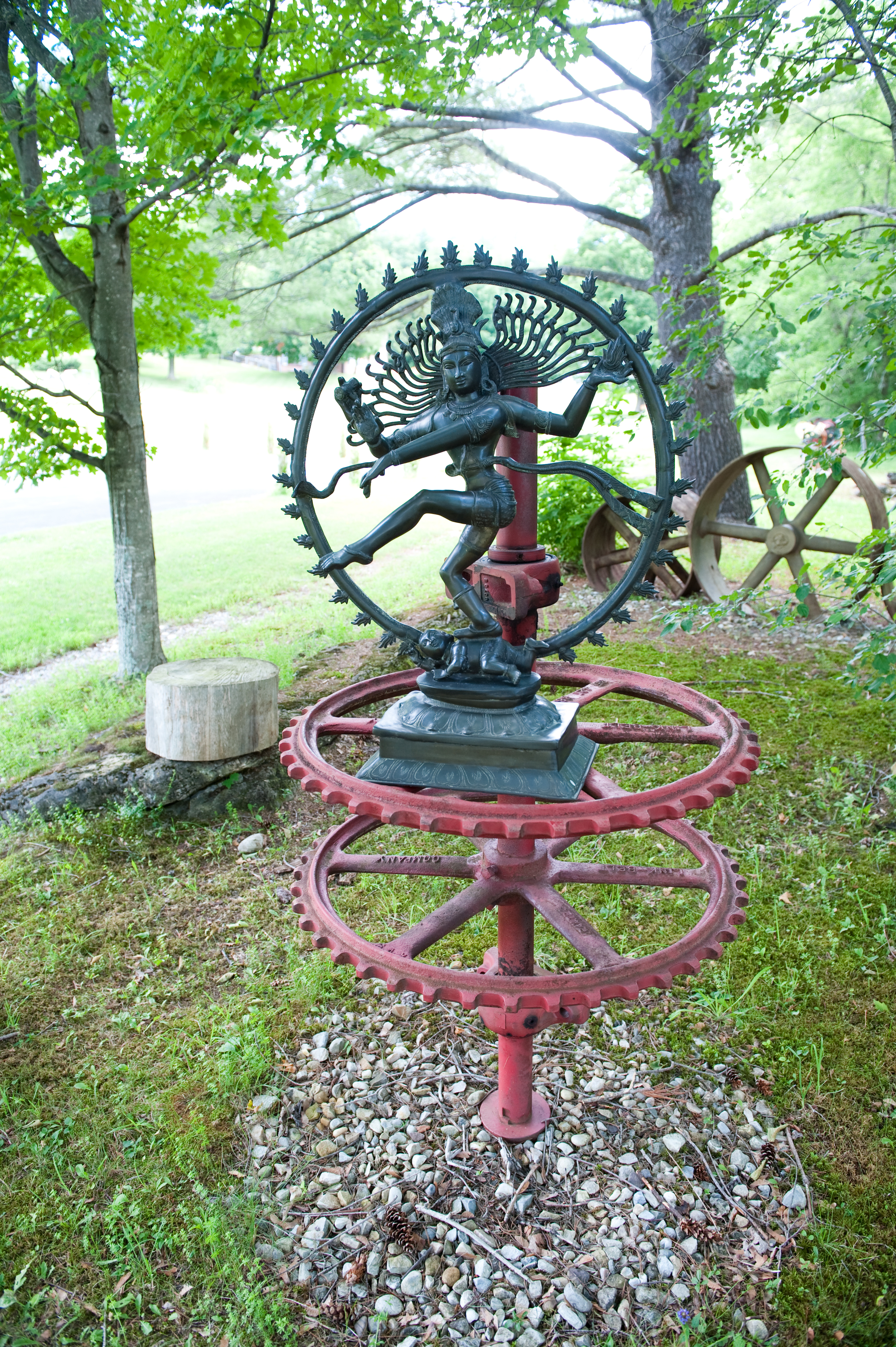
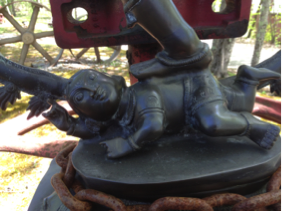

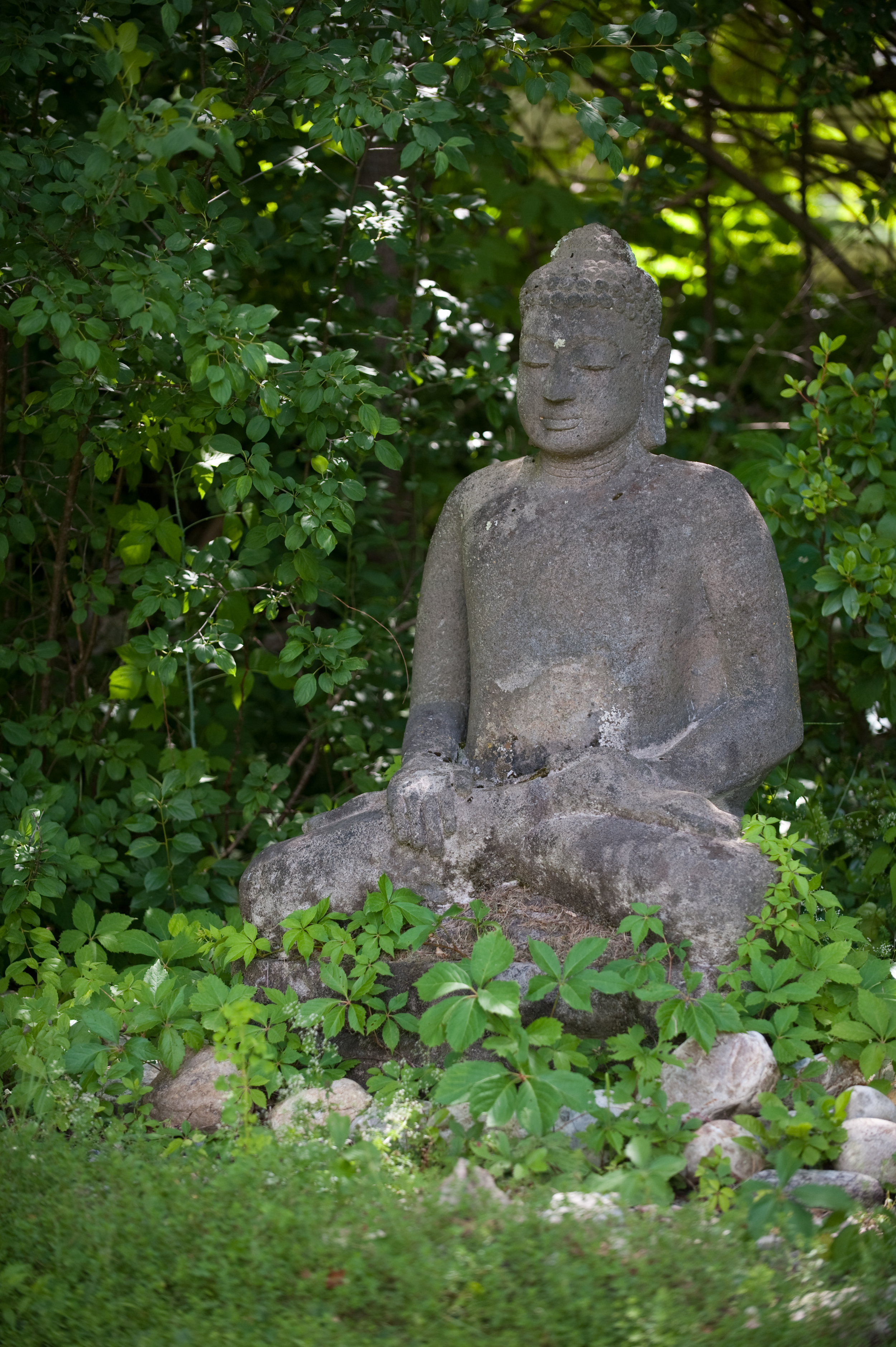
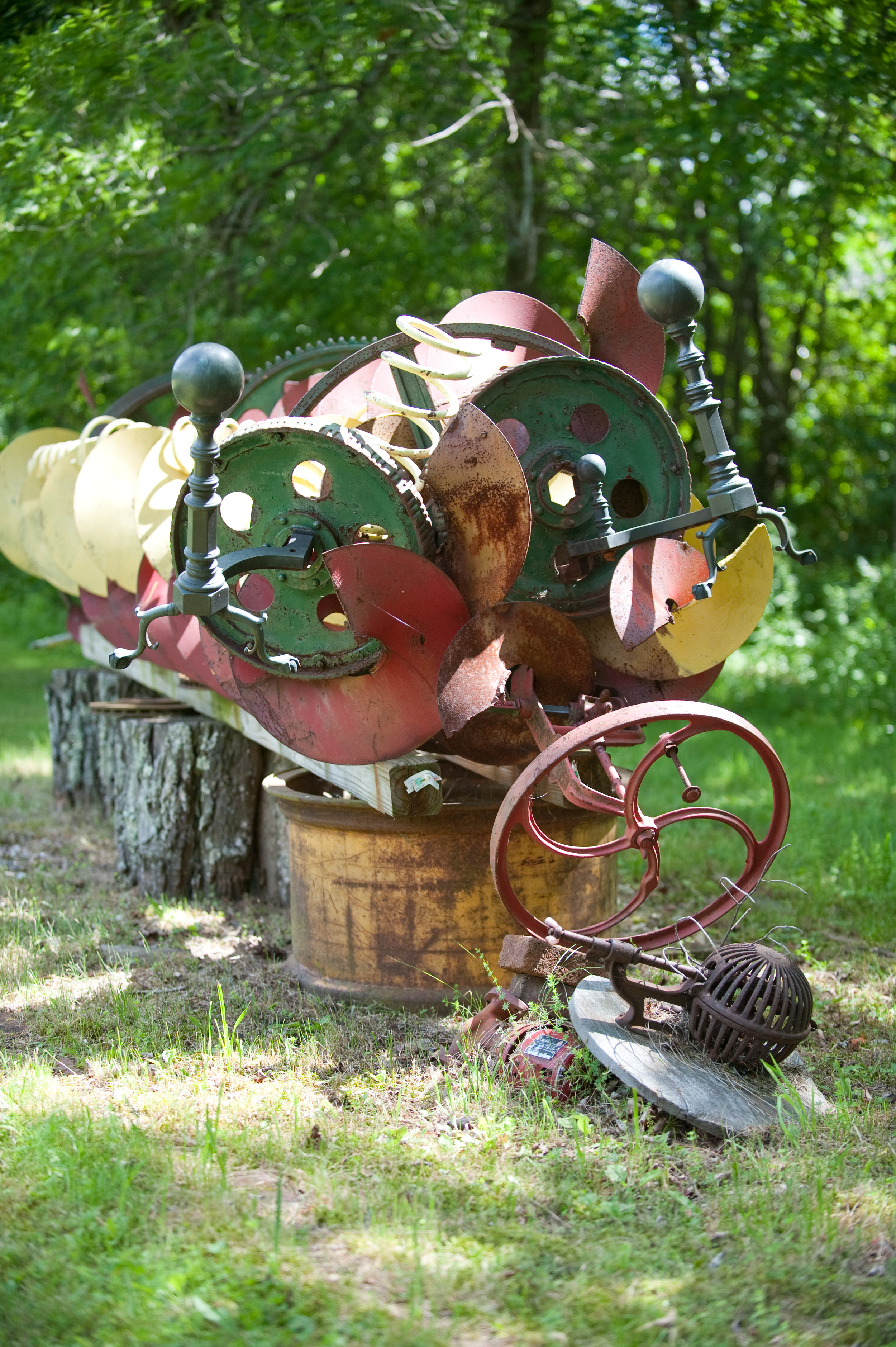

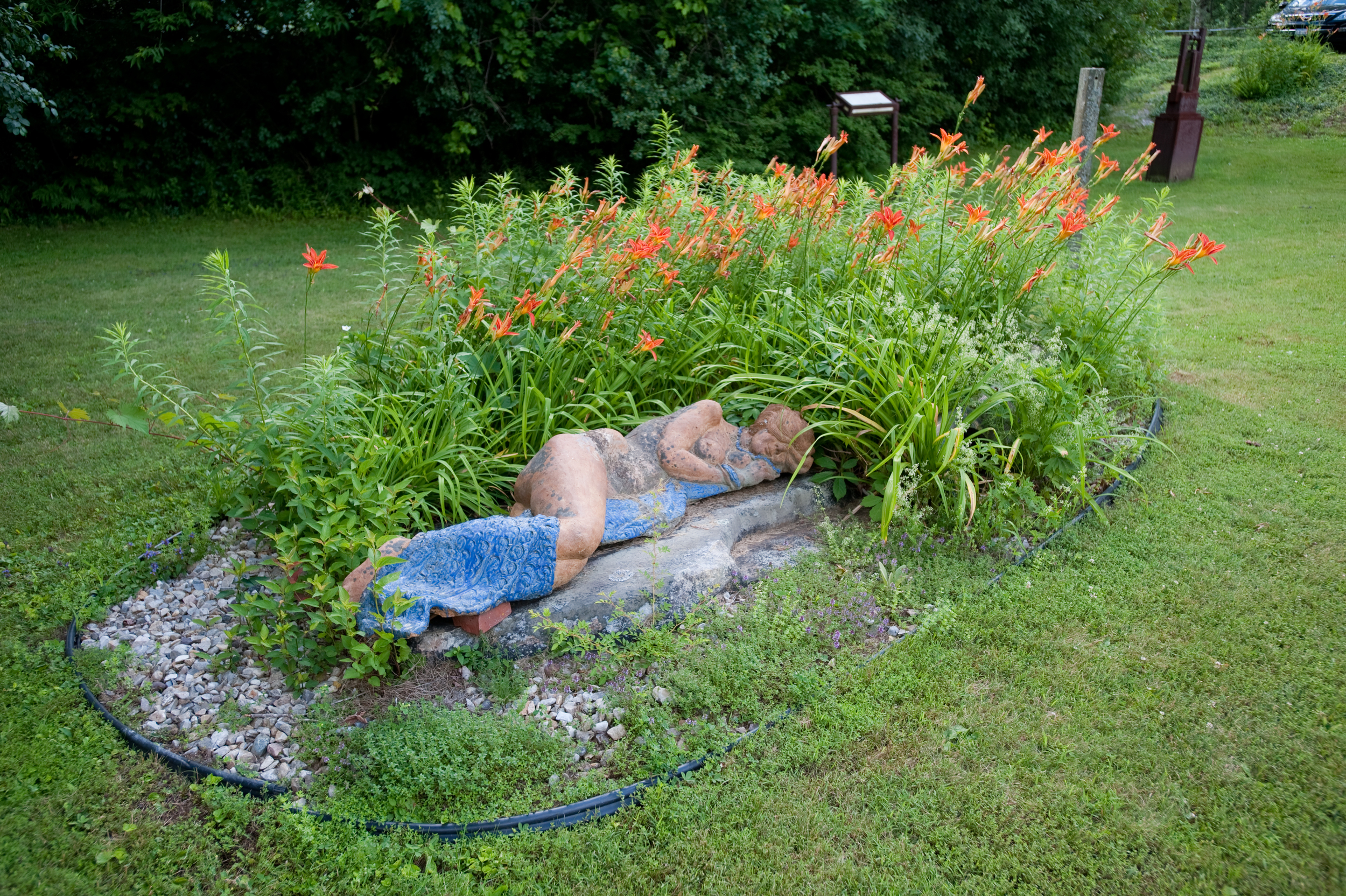
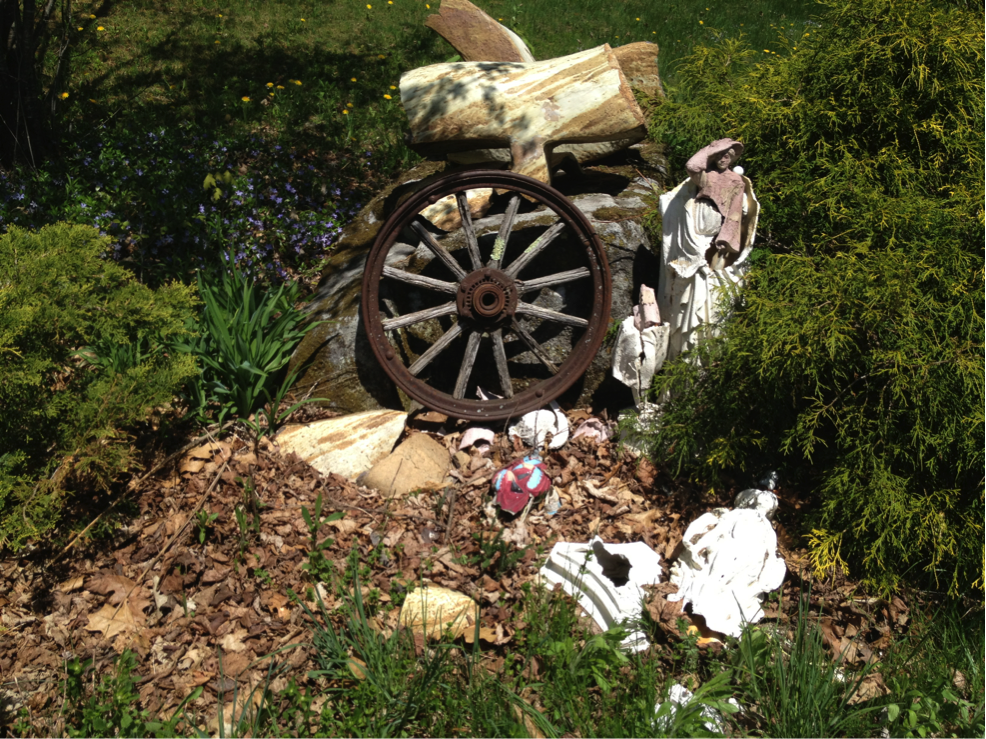
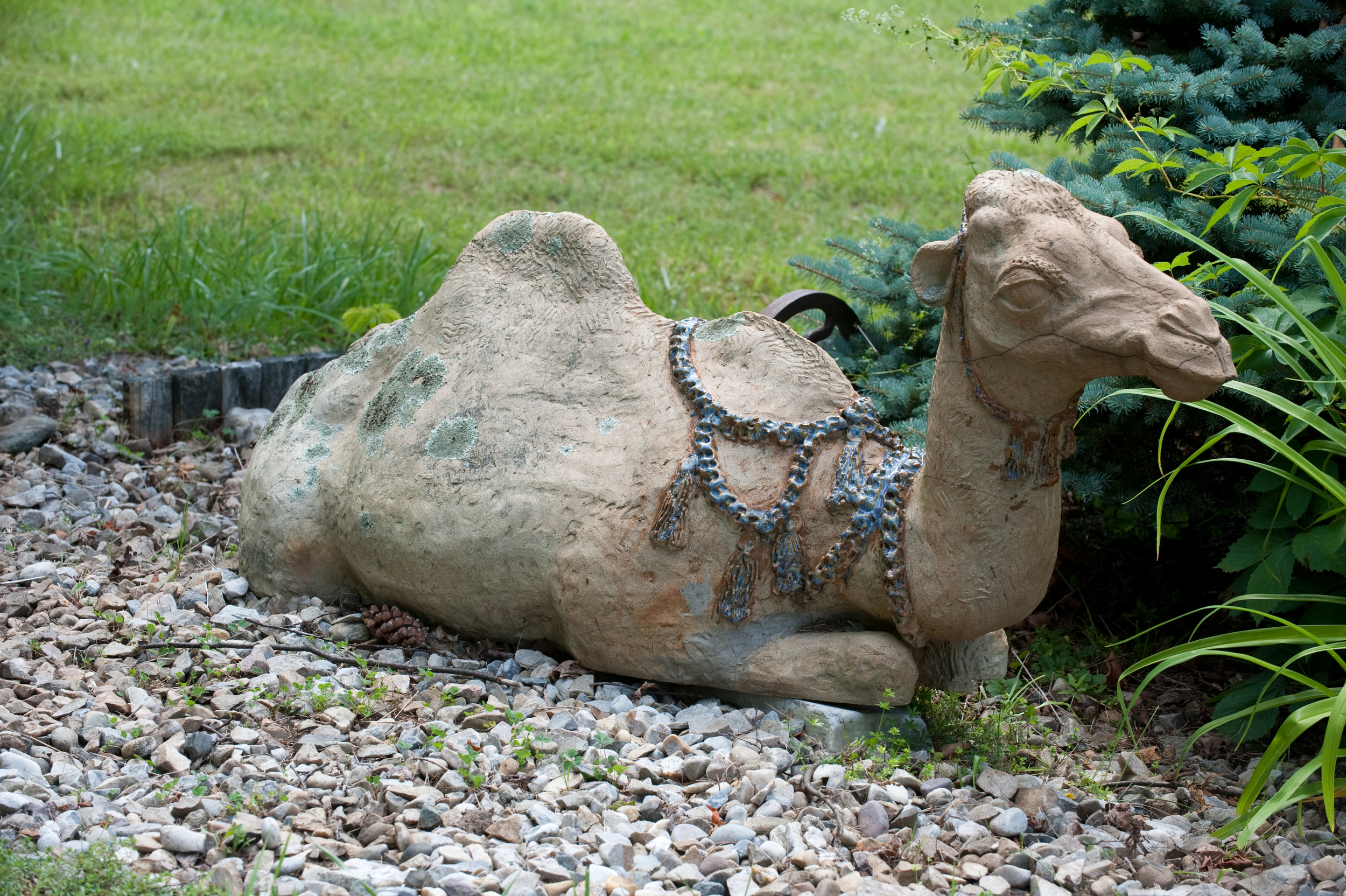
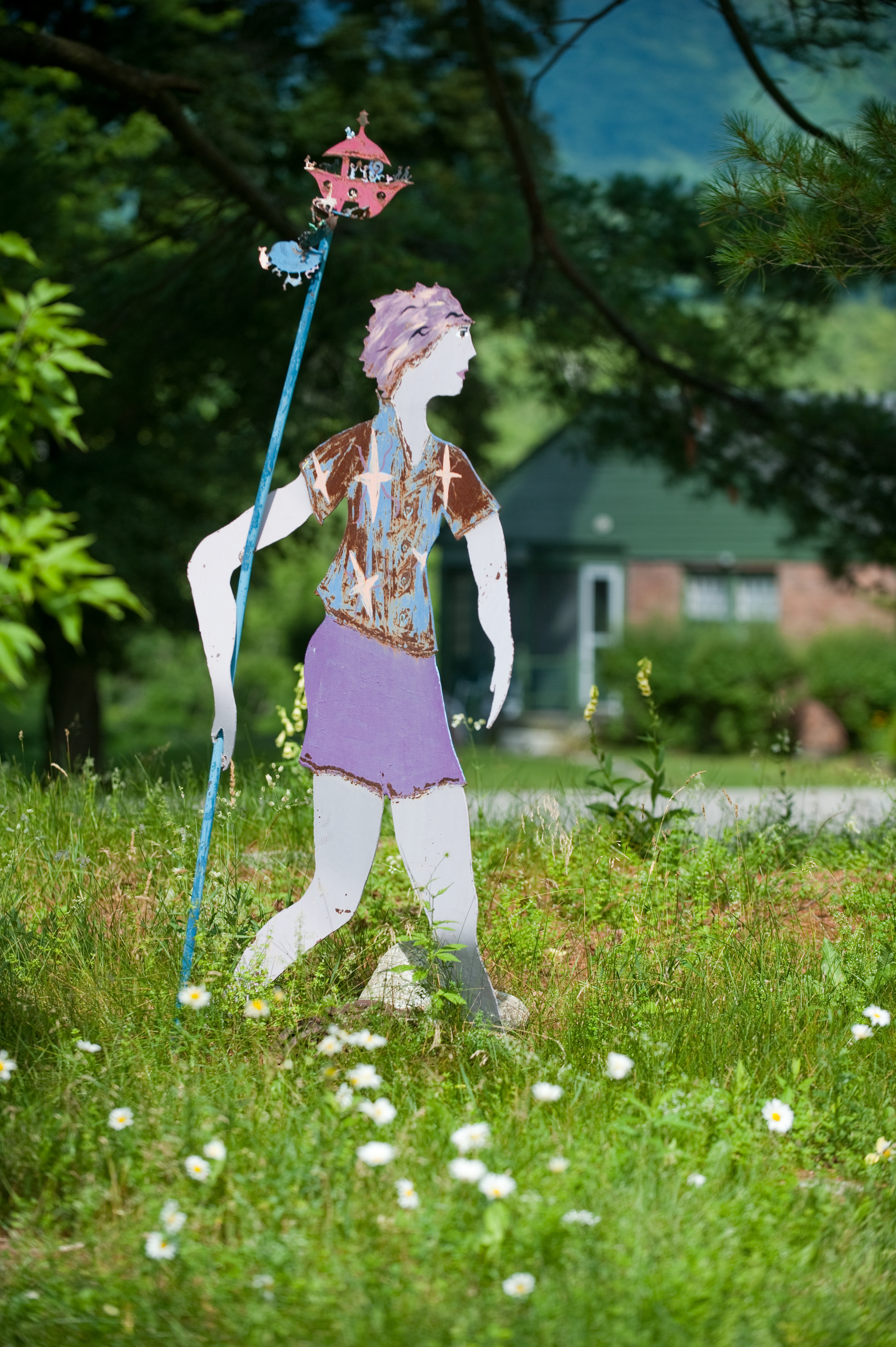
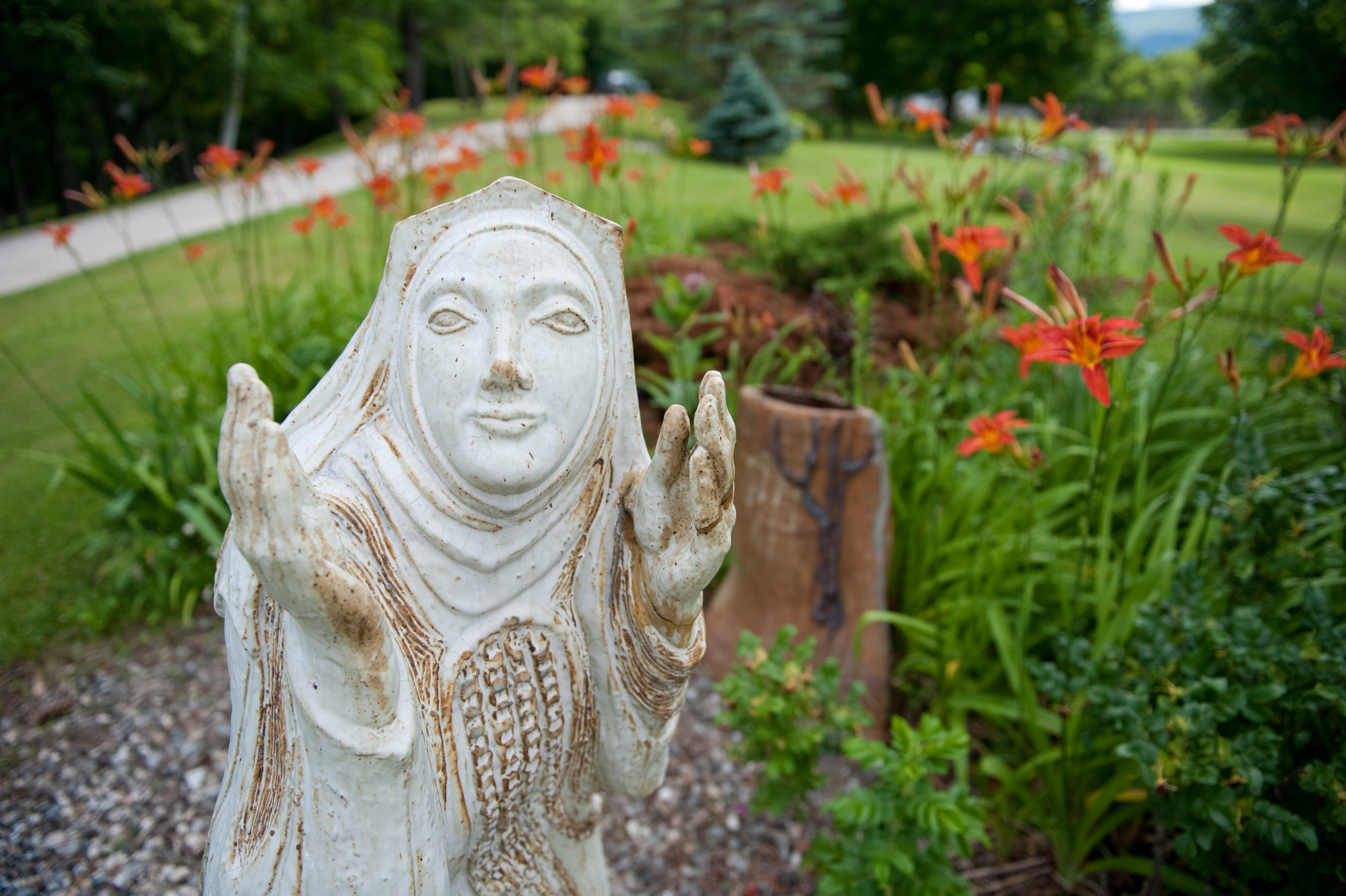
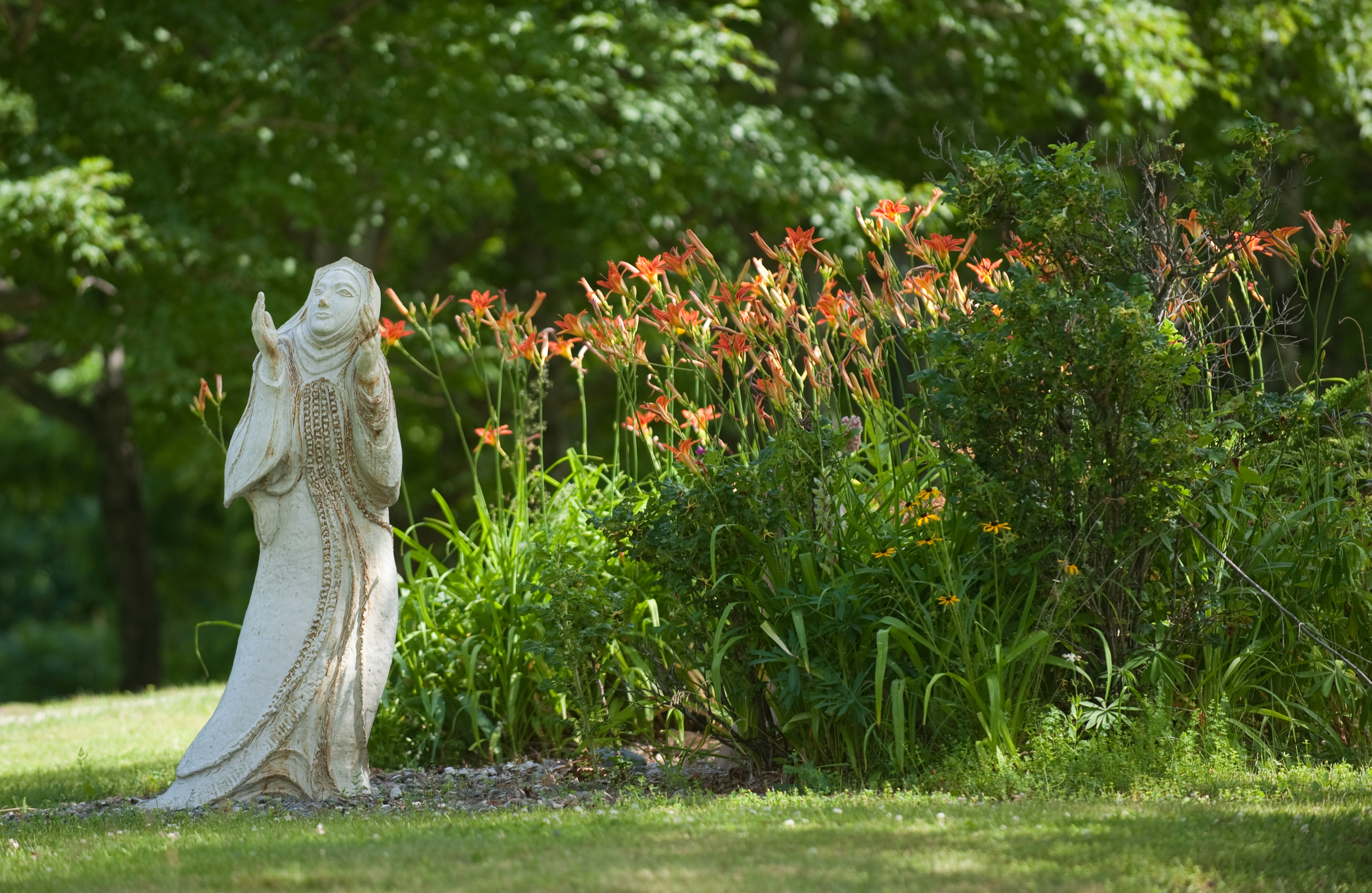
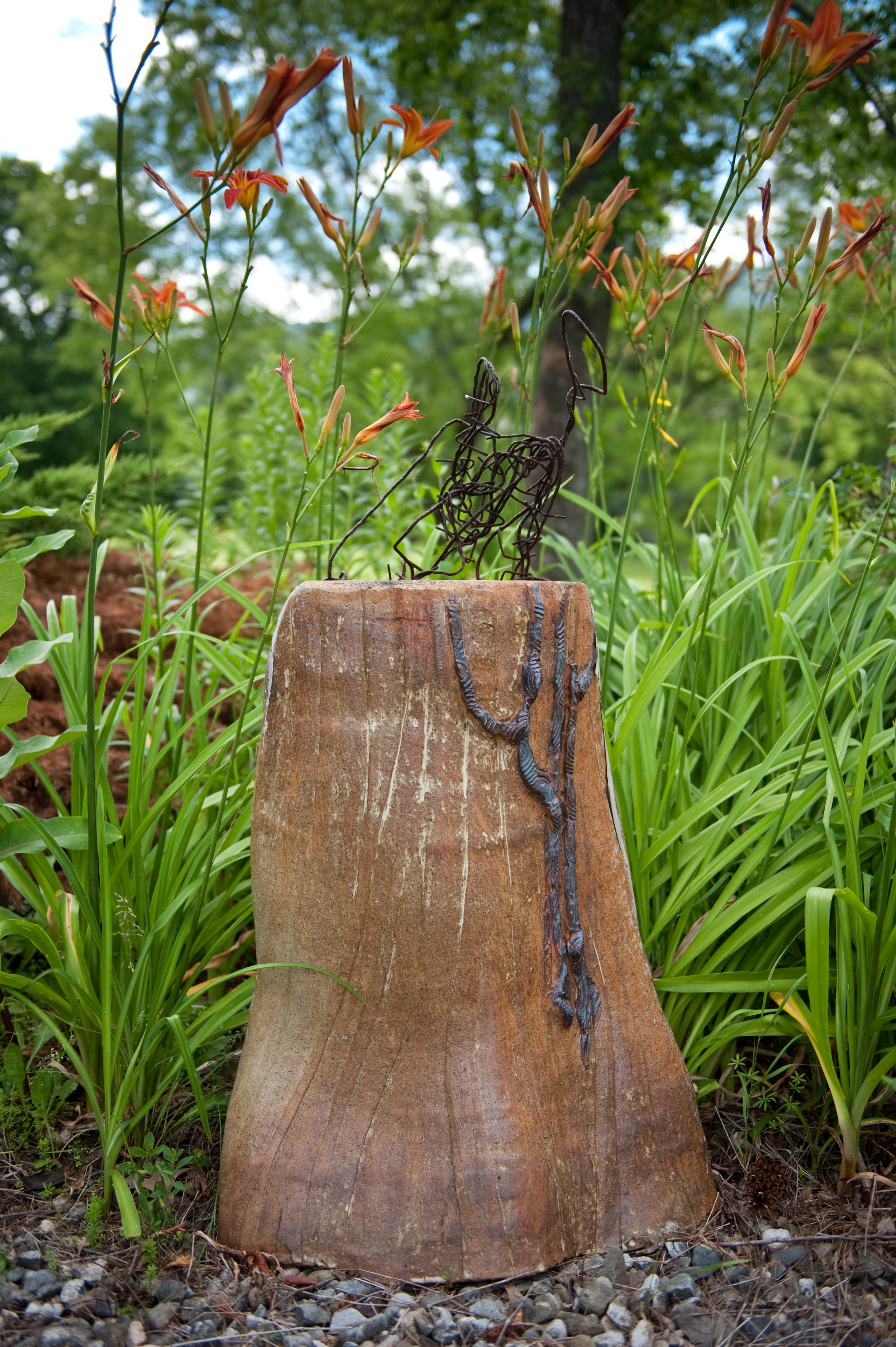
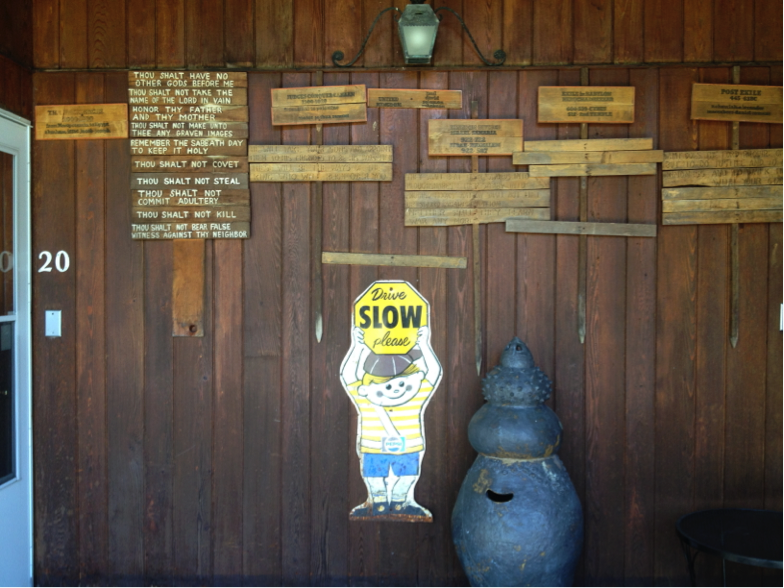
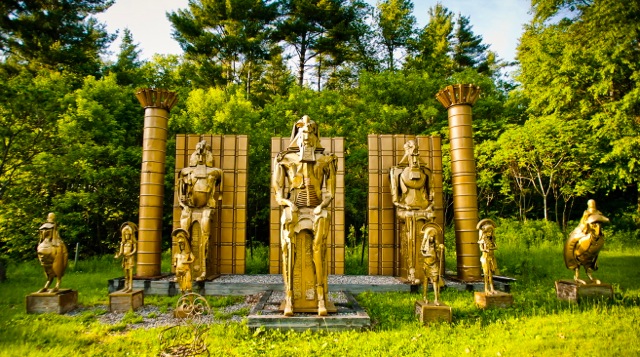

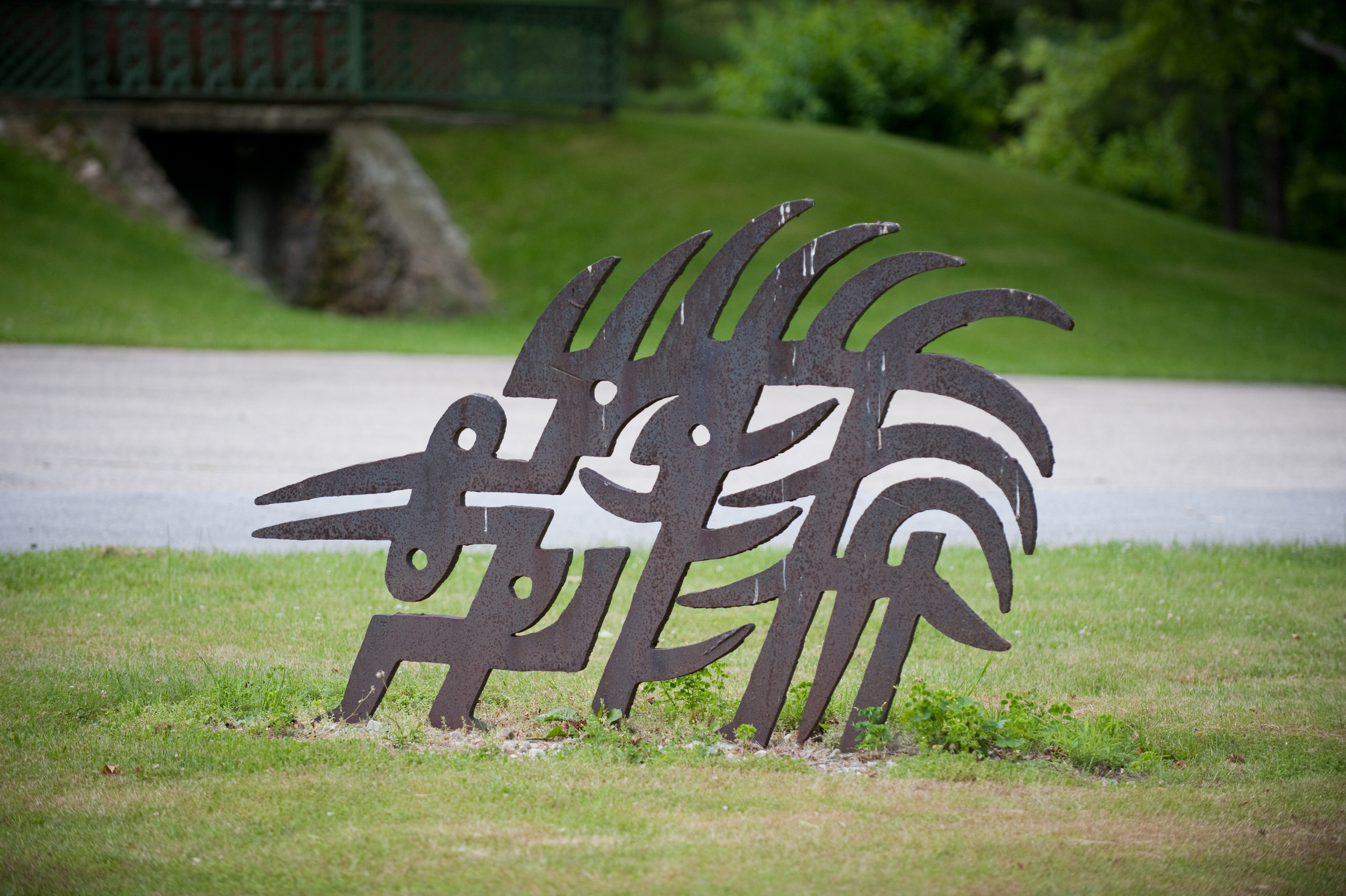
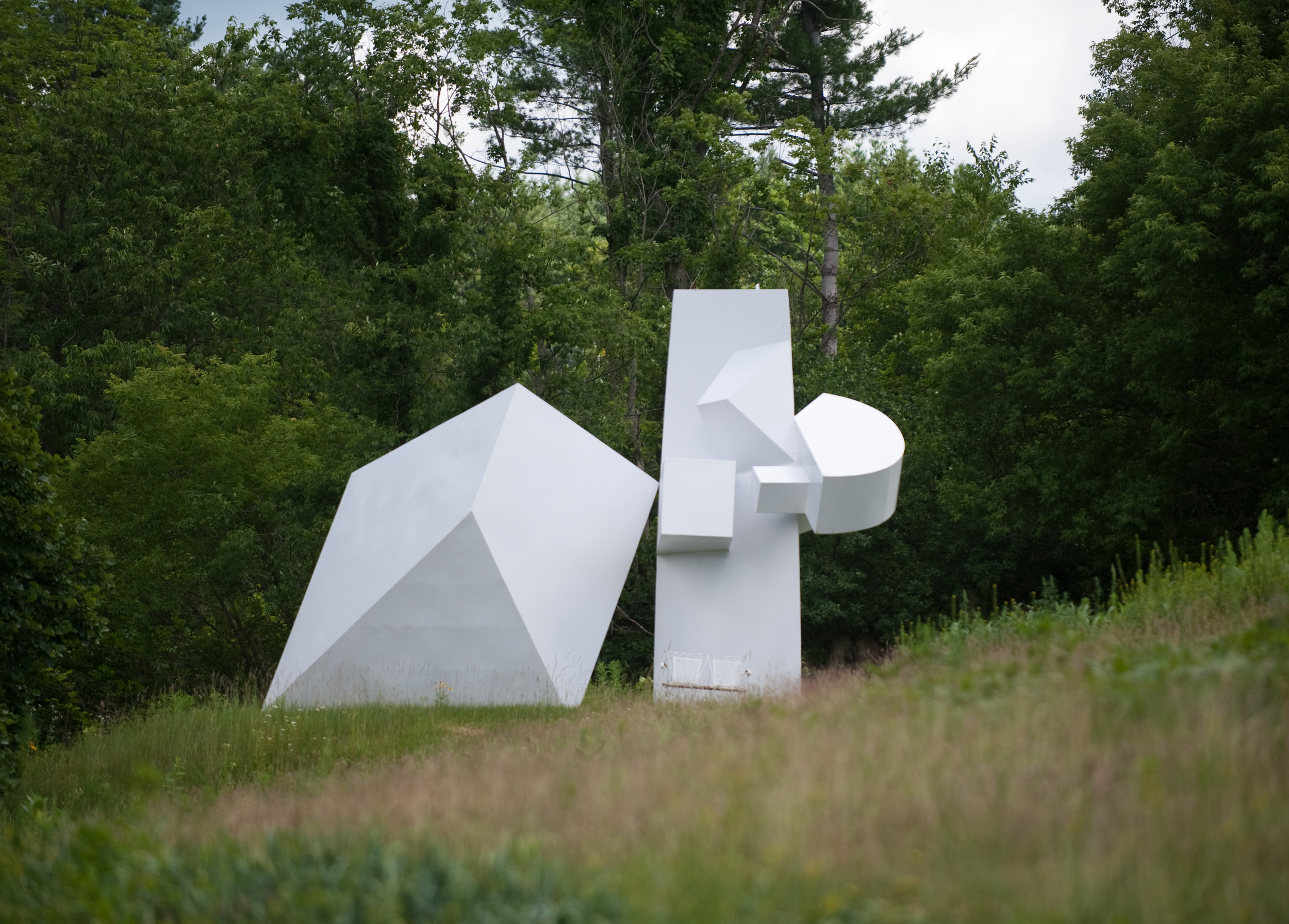
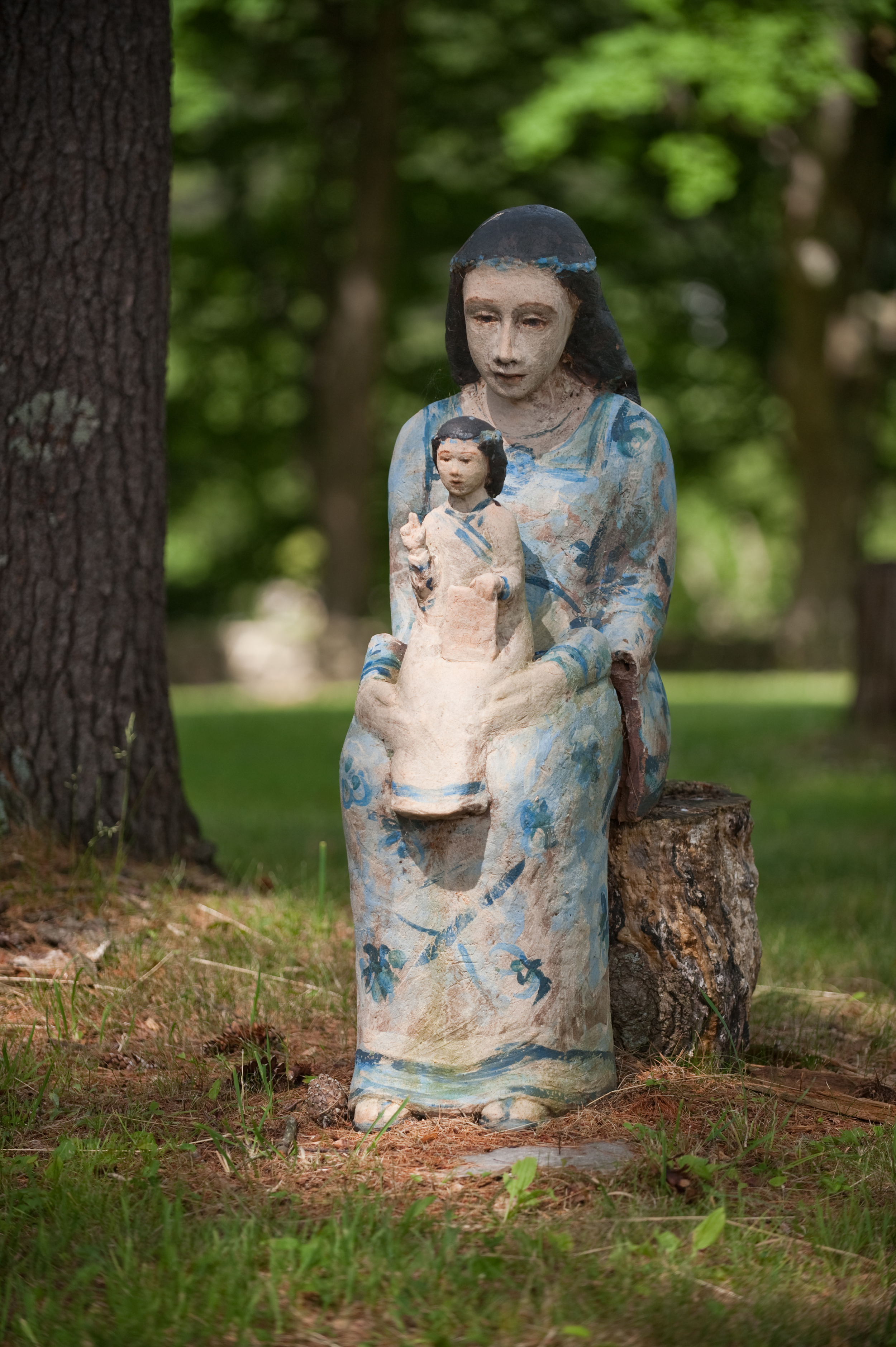
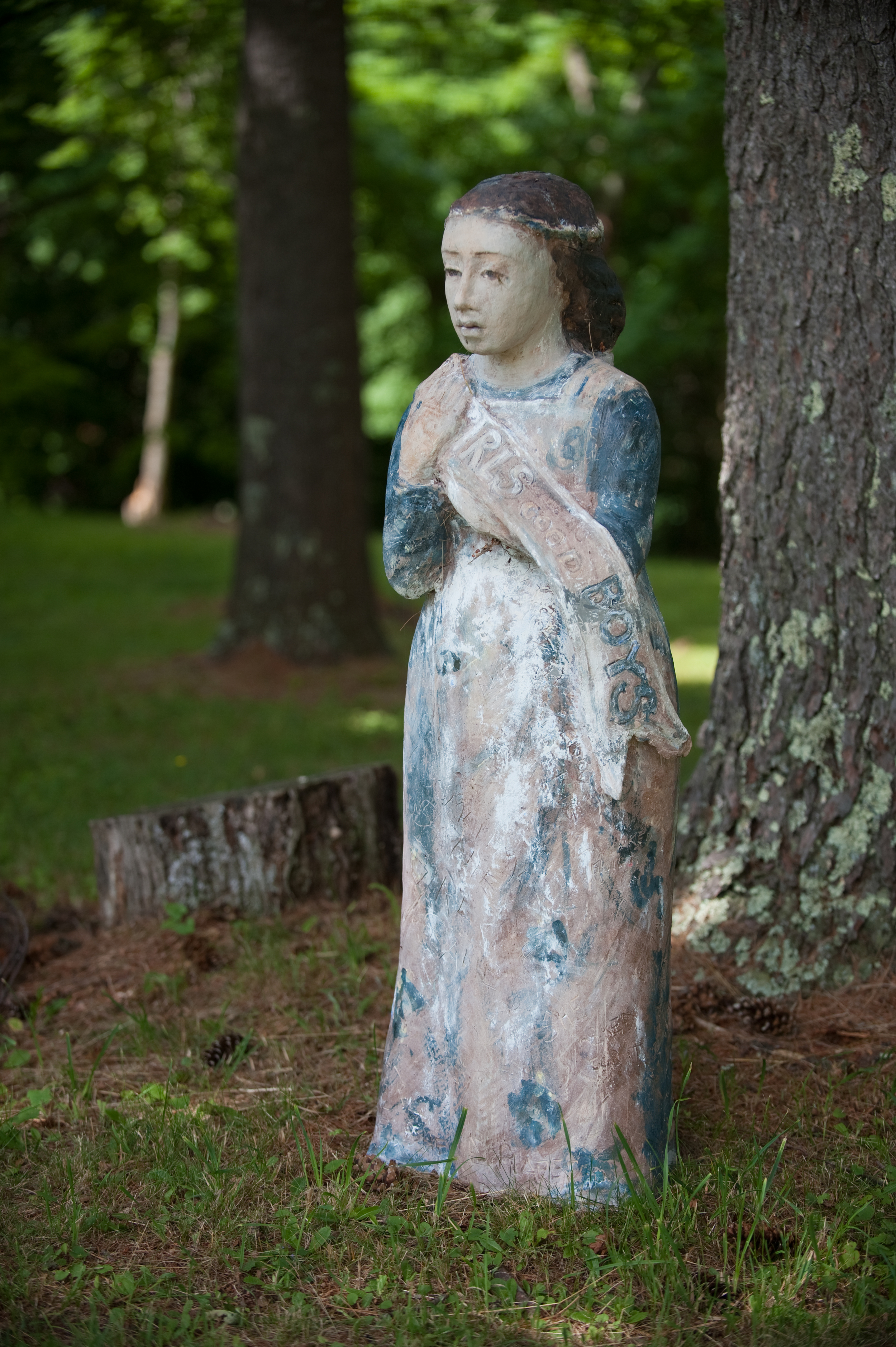
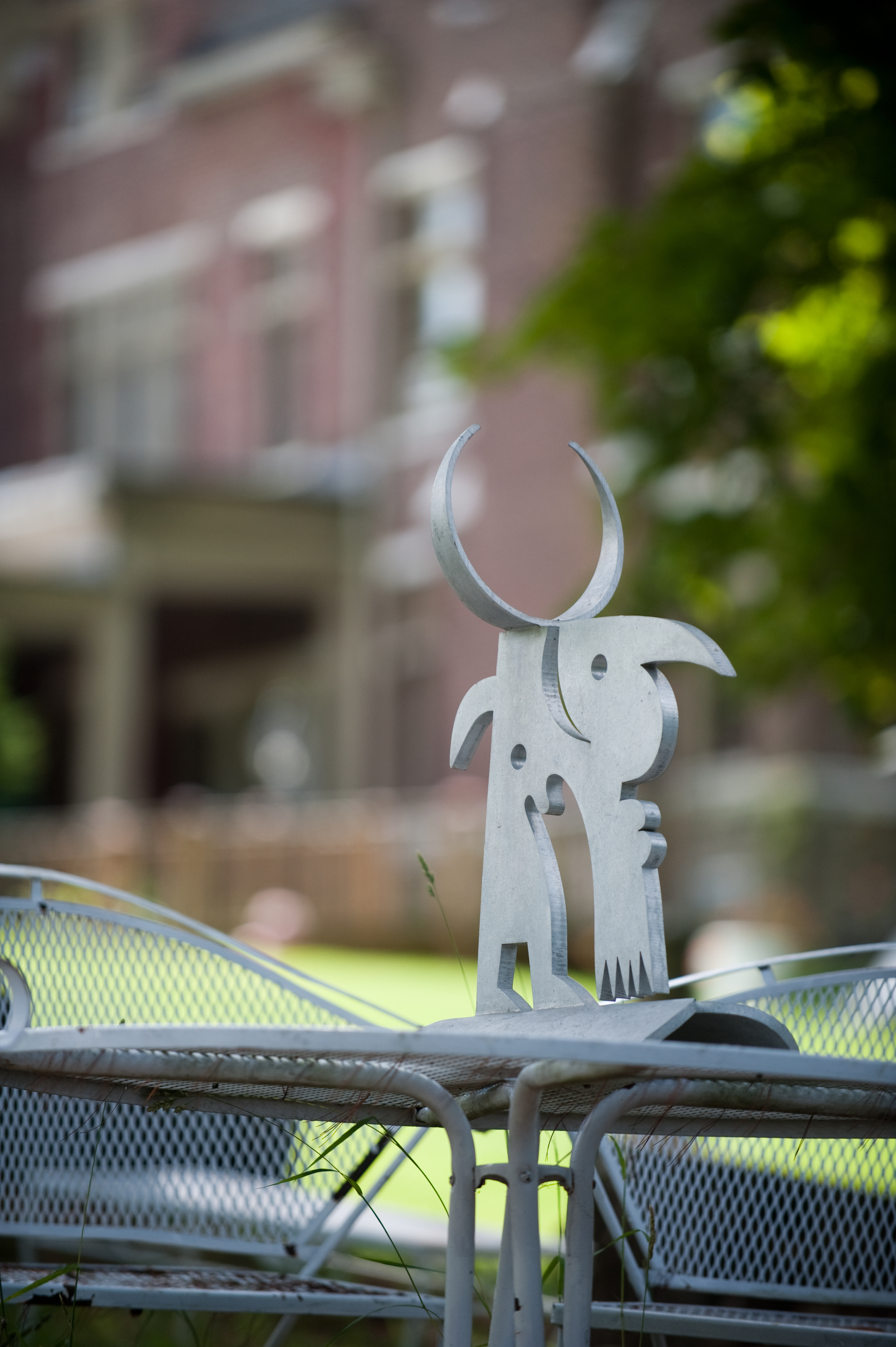
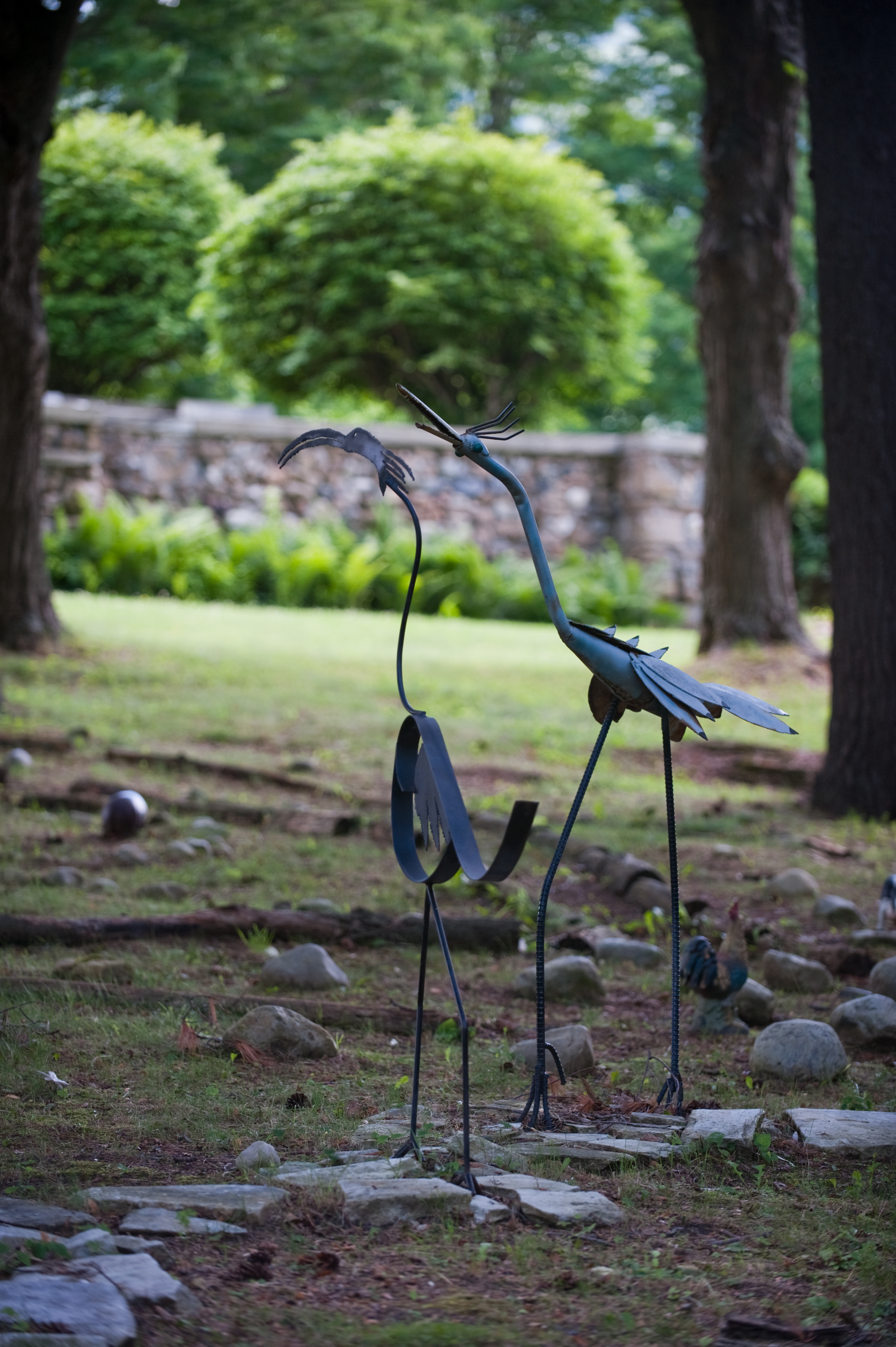
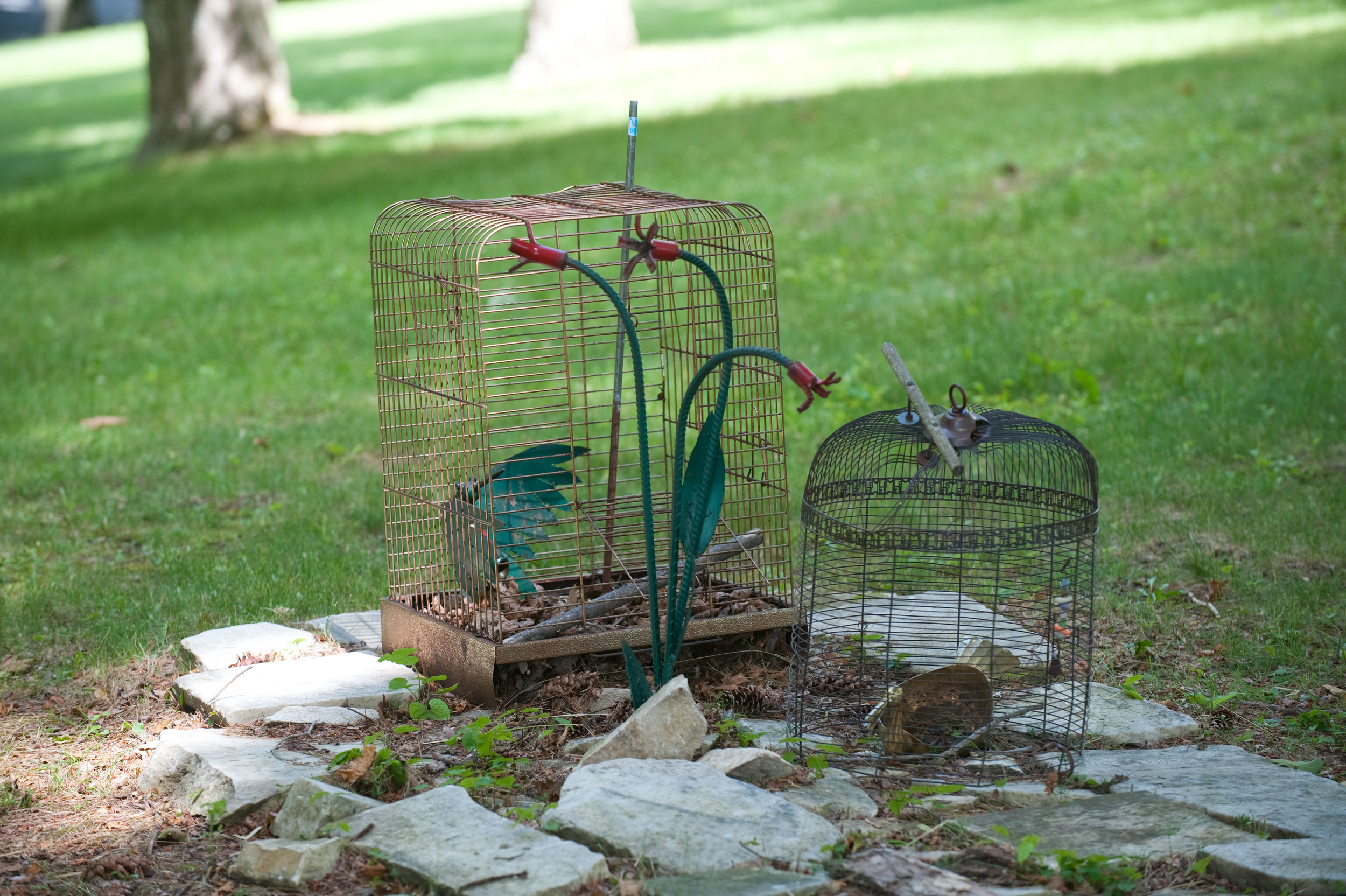
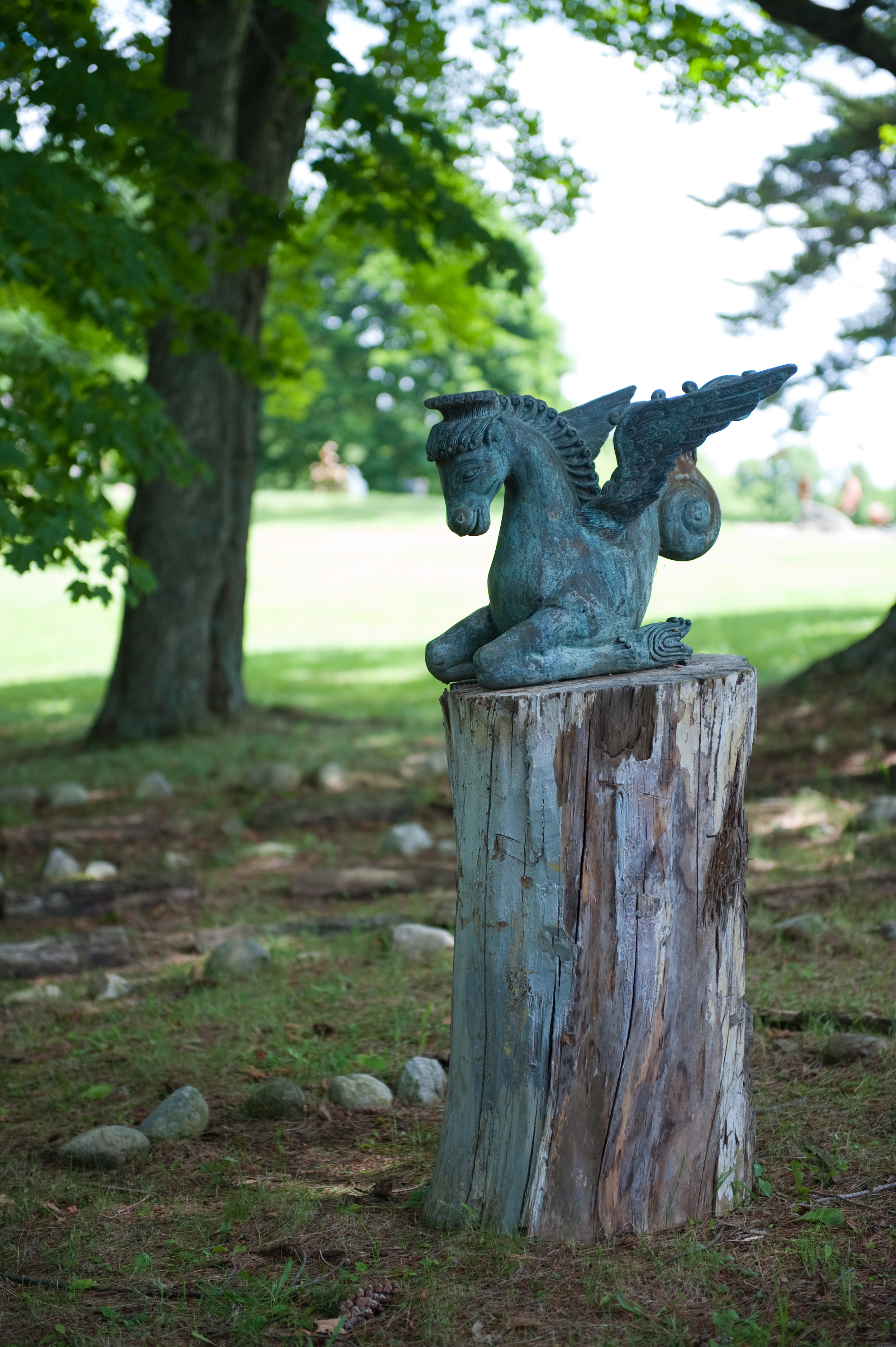
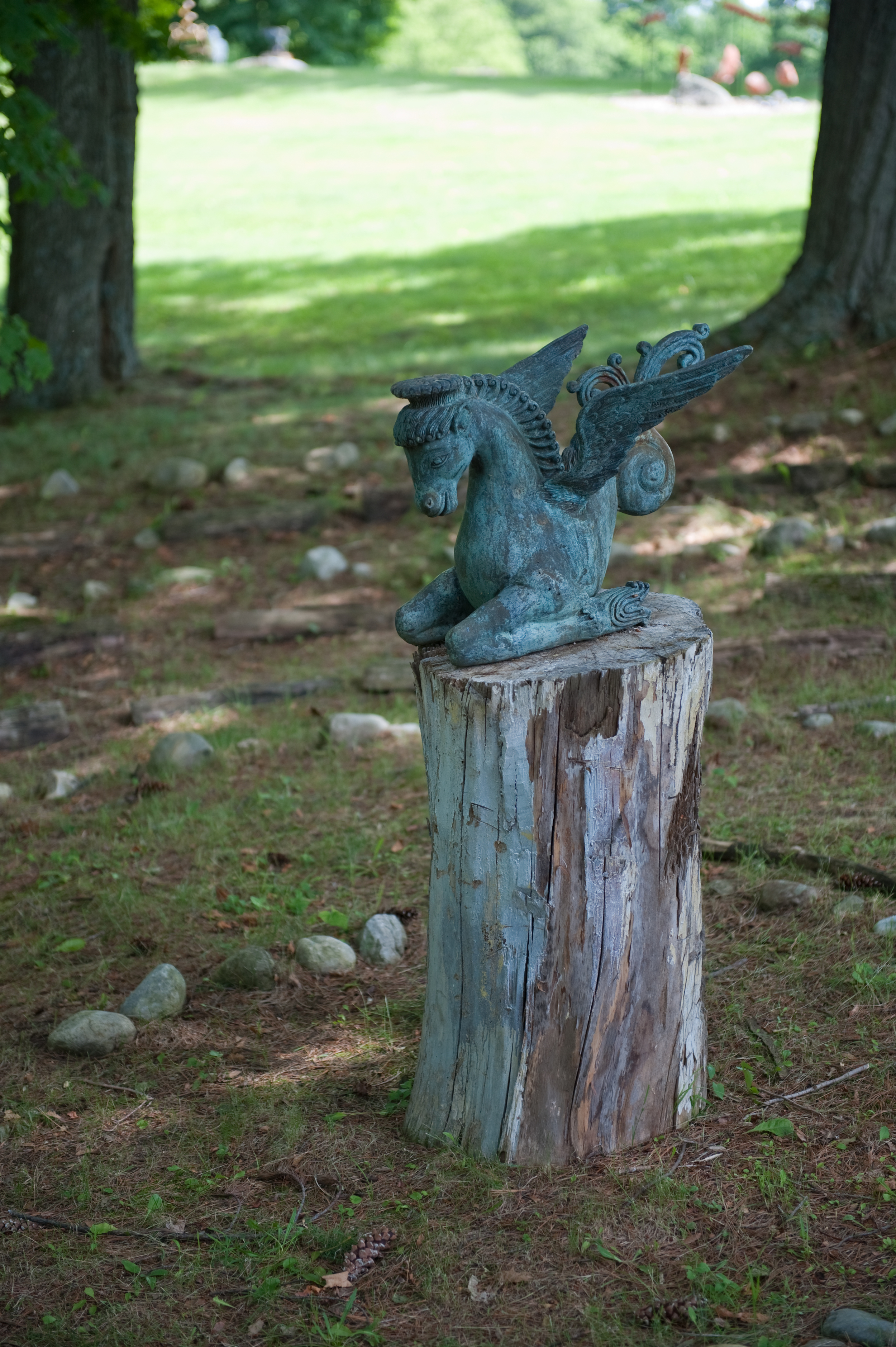
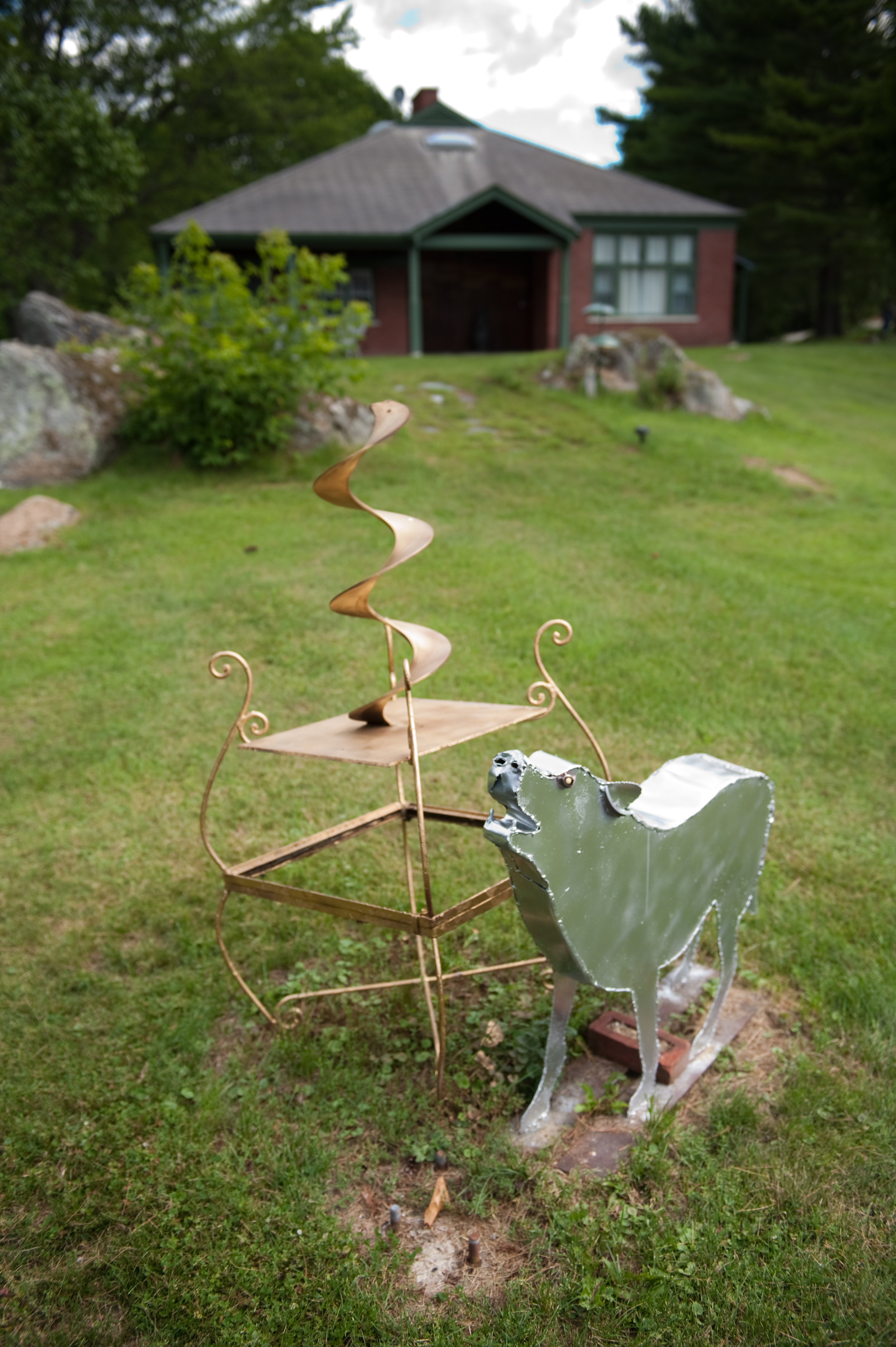
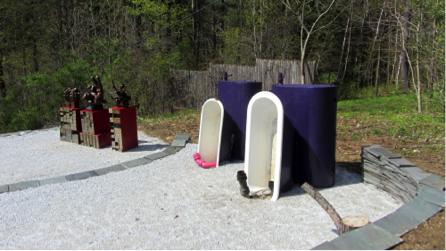

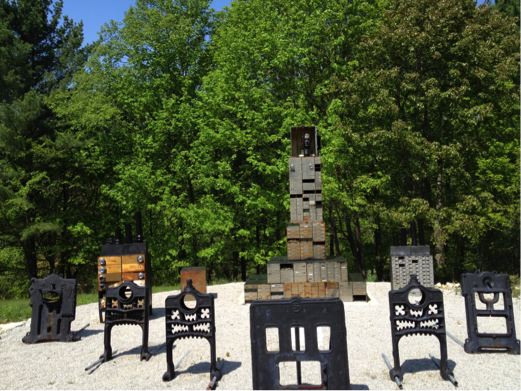


Quatlique is an unapproachable monster: Her hands have the talons of an eagle. She wears a necklace of severed hands, hearts, and skulls. Her skirt is woven with snakes. Her feet are talons. She requires life sacrifices to postpone the impending fifth destruction of the universe as predicted in the Aztec Calendar.

The Homeric Epics, the Iliad and the Odyssey, present patriarchy domesticating matriarchy’s powerful women. Greece discovered mastery of men over women as the way of resolving domestic conflicts. Helen of Troy, presented as a Sphinx, ‘The fight and flight woman’, the woman who does not resolve conflicts, was a matriarch, who had ten lovers. Greek men confronted her and demanded that she choose one among them. She chose Menelaus of Sparta. But then she flew the coop with Paris of Troy. The Iliad is about 1000 ships of Greek men fighting a war to capture Helen of Troy, the run-away wife. The Odyssey is about a man fighting single handedly the power of women. Characteristically he had his sailors bind him on the mast of their boat, so he can listen to the sirens without yielding to temptation, their music and their magic.

Penelope is the heroine of the second Homeric Epic, the Odyssey because she resisted the advances of multiple suitors. The Greek family as portrayed on Olympus was conflicted as men like Zeus pursued women, which upset his wife Hera. Greek tragedies have as titles the names of women.

The Upanishads present the Moon Goddess, the sacred cows, Kali, as powerful women commanding respect and awe. Shiva is portrayed stepping on a demon, his inner child, the one that gets us in trouble with selfish desires; this image defines cooperation, the second principle of conflict resolution. Man has become a cog on the wheel of fortune instead of being the total wheel as he was in Greece.

The Upanishads present the Moon Goddess, the sacred cows, Kali, as powerful women commanding respect and awe. Shiva is portrayed stepping on a demon, his inner child, the one that gets us in trouble with selfish desires; this image defines cooperation, the second principle of conflict resolution. Man has become a cog on the wheel of fortune instead of being the total wheel as he was in Greece.

Anxiety is the phase of a powerful six armed woman, Kali, portrayed by three huge wheels, the moon waxing and waning.

Buddhism is the religion of cooperation. Its four noble truths are: Life is pain, desire increases pain; cessation of desire ends pain; to avoid desire follow the eightfold path of enlightenment, as meditation and moderation.

Defense is presented as men emerging to power, while women are portrayed as loosing it in the cultures of China and Japan. Men grew to become fire breathing dragons and Sun-gods. Women are disabled in their mobility in China, while in Japan, they were given roles of subservience to men as diminutive compliant geishas.

Defense is presented as men emerging to power, while women are portrayed as loosing it in the cultures of China and Japan. Men grew to become fire breathing dragons and Sun-gods. Women are disabled in their mobility in China, while in Japan, they were given roles of subservience to men as diminutive compliant geishas.

Mesopotamia presents the failed quest for the third principle of conflict resolution, mutual respect.

The Enkidu Gilgamish relationship inspired the biblical Father Son Covenant, a relationship of mutual respect between fathers and sons, an alliance that diminished women’s political power. Men could have more than one wife. Abraham continued Gilgamish’s battle reducing women’s power by taking a hammer against his father’s beautiful sculptures considering them as pagan idols in conflict with reverence of the One God. Abraham focused on the new order, the process, Genesis the creation story, symbolized by a wheel, the periodic or cyclic phenomenon of the creation. This process has the characteristics of the creative process, the act of divine intervention.

The Abrahamic women were happy in their compliance but they could fight for their rights. Hagar escaped the threat of immolation with Ishmael in the desert. She is the woman as a Camel and her son, hostile to his sibling, while Sarah deferred to Abraham, a choice that killed her; while Abraham was in the process of staging the ultimate sacrifice, Sarah passed away.

Naomi is the free woman that obeys Ruth, her mother in law, telling her ‘I will go wherever you go.’ Ruth is the caring mother who gives permission to her daughter in law to find a new husband.

Virgin Mary sacrificed her sexuality and her son for the love of God. This Messianic woman is an angel compared to Quatlique, the monster woman, who in the beginning of the trail seeks human live sacrifices. The cycle of the epics of the Goddess completes the transformation of conflicts between men and women as women surrender the power over their sexuality, and over their children, sacrificing their political role in that society.

Virgin Mary sacrificed her sexuality and her son for the love of God. This Messianic woman is an angel compared to Quatlique, the monster woman, who in the beginning of the trail seeks human live sacrifices. The cycle of the epics of the Goddess completes the transformation of conflicts between men and women as women surrender the power over their sexuality, and over their children, sacrificing their political role in that society.

SLOW represents the bar mitzvah child and his mother in a burka, ‘the lady of the nipples or chicken soup is ready’ surrendering control over her son asking him to respect his father.

Created by Judith Brown and exhibited in 1984 at the Lincoln Center, it is interpreted as illustrating the Abrahamic Family; three patriarchs, 18 feet tall and four matriarchs, 4 feet tall, plus two Horus birds, the concubines, the chicks with beaks to peck on the wives. It represents men discovering mutual respect among themselves but sanctifying an inequity, the discrepancies in number and size between men and women.

The pile of wood represents the altar for the sacrifice of Isaac, as Abraham’s test of his wives’ and his sons’ love. It is my assumption that Abraham responded to Hagar’s and Sarah’s advocacy for their sons, by asking them: Which mother is willing to let me sacrifice her son to the one God? He was challenging his two wives’ attitudes towards his executive authority. He like Solomon, was seeking to identify which woman has the right attitude, respecting his authority of a father. My assumption is that Hagar refused and left Abraham to go to the desert with her son, while Sarah dedicated her son to the care of his father, but promptly died of grief while her son Isaac was supposedly being sacrificed. The Bar Mitzvah ritual corresponds to the father son bond.

Anxiety is portrayed in the flat sculpture of Moses’ His spiked porcupine back, is hair standing up like antennas to hear God’s voice, is moving swiftly in the desert creating the Ten Commandments.

The Bride and the Groom, is a metaphor for the loving relationship between the book, the Torah, and the people of the book. The tall figure, the groom, is a rabbi. He has a big nose, a scroll on his shoulder; his hand is pointing to Jerusalem. The smaller sculpture, the bride, resembles a book. The book inspires, while it warns about the power of women as a distraction. Women were less important than the word of God.

Reversal, women’s revolution in Virtual Jerusalem
In the center is a gathering place of men talking about the law. Peripherally, on the ramparts of Jerusalem, are women protesting. The sculptures represent the uprising of women in Hellenized Jerusalem. The Greco Roman influence undermined the traditional Judaic role of women leading to their rebellion, requesting rights for themselves. One sculpture of a woman features a banner “Girls are as good as boys”. Another woman with a child thinks, “God is not with the father and the son, but with the mother and the child” The messianic religion changed the balance of power in the family relations pitting Judaism as the Father Son vs. messianic Mother and Child relationships.

Reversal, women’s revolution in Virtual Jerusalem
In the center is a gathering place of men talking about the law. Peripherally, on the ramparts of Jerusalem, are women protesting. The sculptures represent the uprising of women in Hellenized Jerusalem. The Greco Roman influence undermined the traditional Judaic role of women leading to their rebellion, requesting rights for themselves. One sculpture of a woman features a banner “Girls are as good as boys”. Another woman with a child thinks, “God is not with the father and the son, but with the mother and the child” The messianic religion changed the balance of power in the family relations pitting Judaism as the Father Son vs. messianic Mother and Child relationships.

Reversal, women’s revolution in Virtual Jerusalem
In the center is a gathering place of men talking about the law. Peripherally, on the ramparts of Jerusalem, are women protesting. The sculptures represent the uprising of women in Hellenized Jerusalem. The Greco Roman influence undermined the traditional Judaic role of women leading to their rebellion, requesting rights for themselves. One sculpture of a woman features a banner “Girls are as good as boys”. Another woman with a child thinks, “God is not with the father and the son, but with the mother and the child” The messianic religion changed the balance of power in the family relations pitting Judaism as the Father Son vs. messianic Mother and Child relationships.

Compromise, THE DISCOVERY OF MUTUAL RESPECT IN THE MAN, WOMAN, AND CHILD RELATIONSHIP, completes the unfinished business of the monotheistic religions; it reconciles the three scriptures by introducing the formal operation of mutual respect in the relationship between men and women.

In contrast to the three scriptures with their different injunctions, the Labyrinth, as the sculpture of the plot of stories, illustrates the Conflict Resolution Process as ‘finding out what how one can fly, or find out about oneself.

In contrast to the three scriptures with their different injunctions, the Labyrinth, as the sculpture of the plot of stories, illustrates the Conflict Resolution Process as ‘finding out what how one can fly, or find out about oneself.

Freud’s station features two chapels, upright bathtubs partially inserted in the ground, positioned against purple towers; these are the chapels for the gods of Freud: Venus and Penis.

The monument for Marx features fine Russian metal sculptures by Nicolai Melnikoff, on top of a square set of red violated deposit boxes; the first presents the hands of Armageddon holding weapons, the second, the hand of the crucifix, and the third is a nutcracker waving a sword while the king of the rats emerges from his cannon.

In counterpoint to the colorful sculptures of the Jewish revolutions, this black and bleak holocaust memorial symbolizes Nazi Germany’s persecution of the Jews. This monument presents a pyramid of violated safe deposit boxes, featuring Hitler on the top box, ueber alles, behind bars. The pyramid of violated boxes is surrounded by skeletons of furnaces; one of them has a swastika, reminding us of Hitler’s culture

The sculpture symbolizes the conflict resolution process in the shape of a DNA molecule ascending to the divine. It is the projection of the unconscious as the mental oscillation opposing the law of gravity by growing like a tree toward the sky and the sun.
A wolf on the bottom represents my anger at all arbitrary moralities that have caused harm to the world, as religions and ideologies that have caused immense suffering.
On the steps of the scale I wish to append the heads of the heroes of the century marking the dialectic nature of conflict resolution.
On the bottom I have placed another Hitler head, above it a head of Marx, further up one of Freud, up top one of Gorbachev, the hero of glasnost and perestroika, who singlehandedly freed the world from the conflicts of Marxism as the economic model.
By placing the heads in a sequence I seek to inspire forgiveness and healing based on the principle that these individuals meant well but were misled by bad science. I am also inviting them to be reconciled as partial truths fitting in the dialectics of the scientific paradigm of morality as the science of conflict resolution. I believe reconciliation can heal the world.